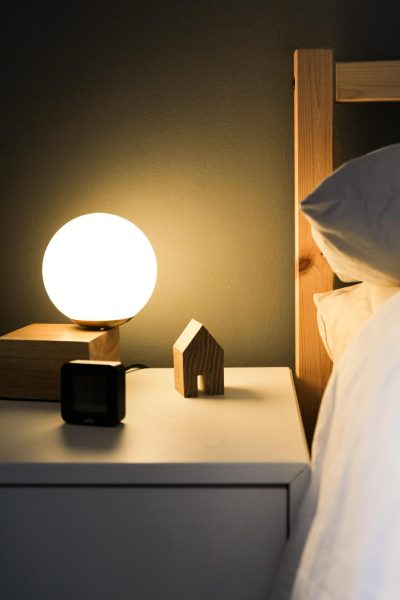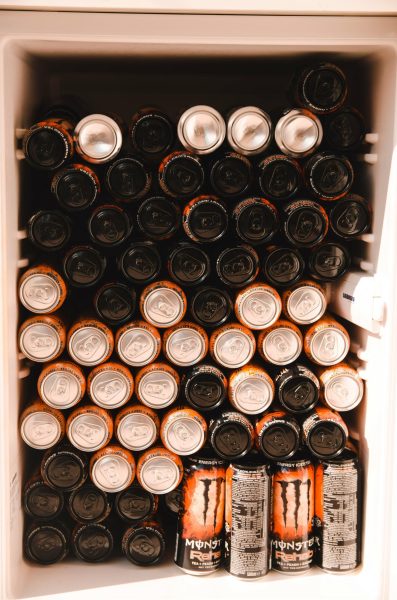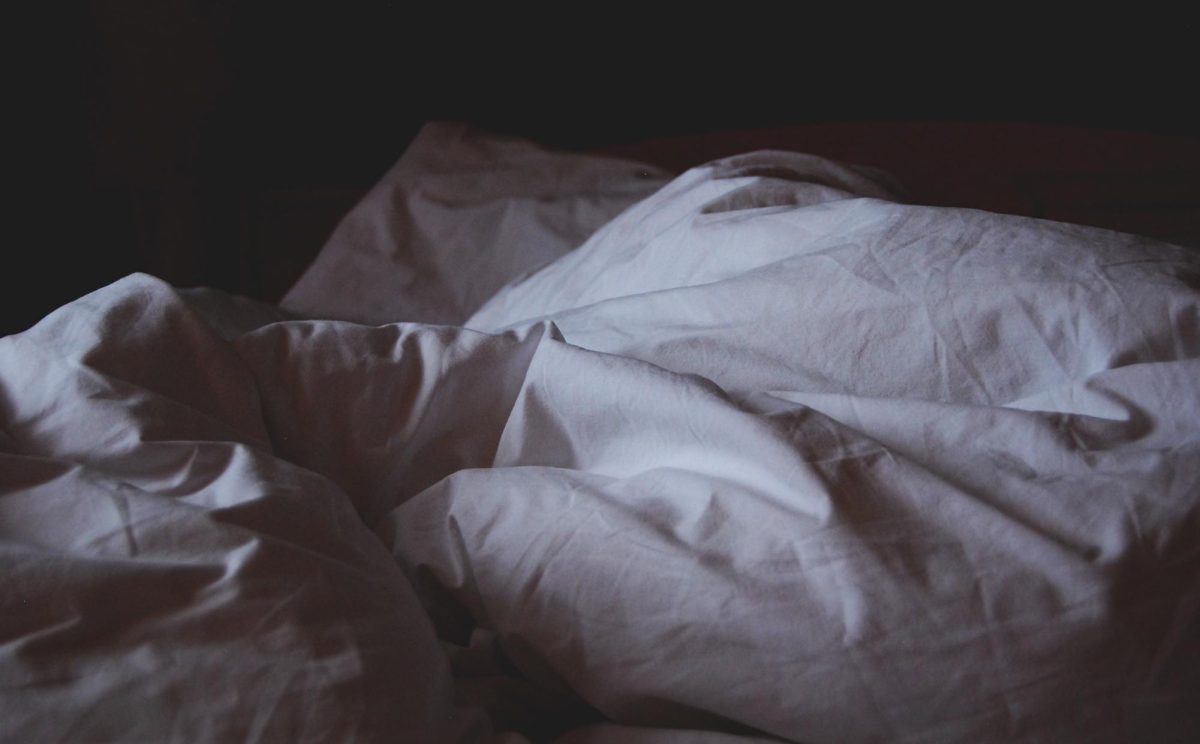Walk into any grocery store, and you will see a refrigerator full of energy drinks, surrounded by groups of teenagers; the caffeine from the drinks will propel the teens through another long day of school or work.
Gen Z does not sleep — largely due to a mix of insomnia, an overwhelming workload, and a struggle to turn the technology off for the night. It is the norm, with people even competing for the least amount of sleep intake per night and bragging about the amount of caffeine consumed, as though these are measures of success.
However, this is deeply dangerous, affecting brain structure and function, development, and the formation of toxic habits for years to come.
Sleep deprivation harms one’s ability to learn, to make decisions, to remember information, and to react to change. The brain uses sleep to create new pathways for proper functioning, so, without it, teens struggle with managing stress, maintaining attention spans, and balancing their mood swings.
Lisa Lewis, key advocate for delayed California school start times and author of The Sleep-Deprived Teen, reflected, “Teen brains are less well equipped to deal with sleep loss than adult brains because teens are still undergoing major brain development. The end result is faster processing and better connectivity between the brain regions, which helps make decision making faster, decreasing impulsivity, and improves executive functioning. When a teen is sleep deprived, there’s increased emotionality that isn’t as well tempered by the prefrontal cortex because that hasn’t fully matured yet.”
Teenagers spend longer and longer using various forms of technology to communicate, complete assignments, and interact with different forms of media. Then, the later one looks at a technological device, the harder it becomes to sleep, creating a vicious cycle where people who want to sleep, and need it more than ever, are unable to, their brains not able to “shut off.”
The Coronavirus pandemic has only amplified struggles sleeping, as well, with a study from Sleep Medicine finding that one-of-three participants across thirteen countries held symptoms of clinical insomnia — a disorder centering struggles falling asleep, staying asleep, or waking up at appropriate times — more than double rates pre-pandemic.

The pandemic’s magnification of mental health struggles also worsened sleep disturbances. The stress of this event caused more time spent at home, shifts in daily routine, and an abundance of uncertainty, all of which disrupt circadian rhythm. This critical period at which young people began developing sleep habits was marred, and its effects very much linger.
The amount of sleep needed varies with age, with optimal times for teens 8-10 hours, adults 7-9 hours, and older adults (upwards of 65 years old) 7-8 hours.
Lewis added, “After age 18, there isn’t a magic switch that happens on your birthday, but that’s when officially the recommendation is 7 to 9 hours (the adult range). That’s really what your body needs for optimal functioning. Until age 18, teens should be getting 8 to 10 hours of sleep every single night, and it’s super easy to discount that, but you’re just making everything that much harder.”
Sleep is fundamental to both mental and physical health. Without a sufficient amount or quality of sleep, we respond more negatively to stressors and feel less positive in general, whether it is snapping at a friend’s well-meaning comment or finding less joy in a favorite meal. Inside the brain, sleep maintains cognitive skills (including memory, attention, and learning) necessary to appropriately perceive the world — and particularly to learn in school.
Lewis reiterated, “There is nothing that anyone does any better as a result of being sleep deprived.”
Not only does duration matter but quality as well, with poor sleep impairing function on all levels. Sleep deficient people are less productive, take longer to complete tasks. Also, they react more slowly, and make more mistakes. After enough time of sleep deprivation, one’s capacity to operate reaches the same level as someone who hasn’t slept for a whole day. Sleep deprivation can also cause “microsleep,” briefly falling asleep at inopportune times, whether that is in class or while watching T.V., manifesting itself in the missing of important information or having brief lapses in conversation.
Sleep struggles and mental health disorders also go hand in hand. Those who suffer from anxiety and depression may find insomnia to be a symptom, their mental health manifesting through trouble with sleeping. On the other hand, unhealthy sleep patterns can also exacerbate mental health problems. “Otherwise healthy” people feel heightened distress after improper sleep, and those with mental health disorders are more at risk for chronic sleep problems, which then worsen psychiatric symptoms.
Those who have mental health disorders are even more likely to experience chronic sleep problems and, in turn, these sleep problems are likely to exacerbate psychiatric symptoms and even increase risk for suicide. The good news is that there are ways to improve sleep quality and quantity, so identifying and addressing sleep problems is critical to alleviating the severity of psychiatric disorders.
Many people may not realize they have a sleep deficiency, or that this deprivation poses problems to their functioning. Exhausted drivers may still drive, but a person not having enough sleep is as dangerous as one impaired by alcohol, causing many accidents and more than a thousand deaths.

Unfortunately, there are no “hacks” to make up for sleep deprivation, with neither caffeine or naps providing the body sufficient compensation. Coffee helps one stay awake by blocking adenosine, which induces sleep, but, later that night, it will reduce the body’s ability to have slow-wave sleep, necessary for cardiovascular health and hormone production. Even naps can dysregulate the body and prevent sleep later on.
In contrast, good quality sleep is a protective factor for the heart and blood vessels, supporting growth and guarding against risk factors for cardiovascular disease. Furthermore, it balances hormones, such as ghrelin, which causes people to feel hungry, as well as leptin, causing people to feel full. During deep sleep, growth hormone is released, allowing for the development of muscle mass and the repairing of cells. Sleep, which also changes during puberty, affects all aspects of our lives, particularly the immune system. Sleeping sufficiently reduces the risk of high blood pressure, obesity, and strokes.
To make this a reality, one must set up healthy habits: first in time-blocking — designating a set amount of time for an activity in advance to plan out one’s commitments — and then with a consistent sleep schedule and bedtime routine. Processing one’s workload and planning accordingly is important. Contrary to the belief of many students, work should never come at the expense of sleep.
Lewis urged, “Each incremental piece that you’re adding on, takes up more time. And when you look at how many hours, how many waking hours you have in the day, and you map out how much time you’re spending, not just in school, but on homework for each and every class, on all your extracurriculars. You need some time to breathe and eat. But if you add all that up, and there’s not even a window left of 8 to 10 hours, that’s an issue, a sign that maybe it’s time to reevaluate.”
From there, building a healthy sleep environment, with a calming room temperature and dim lights, improves receptibility to sleep. Regular exercise, though not right before bedtime, may help the body relax, as well.
Lying in bed awake is not useful — the body needs to wind down. Whether in meditation or journaling, releasing the events of the day proves useful without the use of screens at least one hour before bed.
Lewis added, “You can’t just flip your brain off the same way you flip off the lights.”
For those that experience sleep difficulties, healthy sleep habits may not be enough. Those with chronic insomnia may seek cognitive behavioral therapy for insomnia (CBT-I), medication, or other treatment. There is no shame in receiving help for these struggles.
Combatting the cyclical problem of sleep takes time, but it has large benefits for the health and safety of upcoming generations. The energy drinks will not just disappear from production, nor will people stop purchasing them, but, maybe, eventually, the aisles of students will get less crowded.
“There is nothing that anyone does any better as a result of being sleep deprived,” said Lisa Lewis, author of The Sleep-Deprived Teen.

